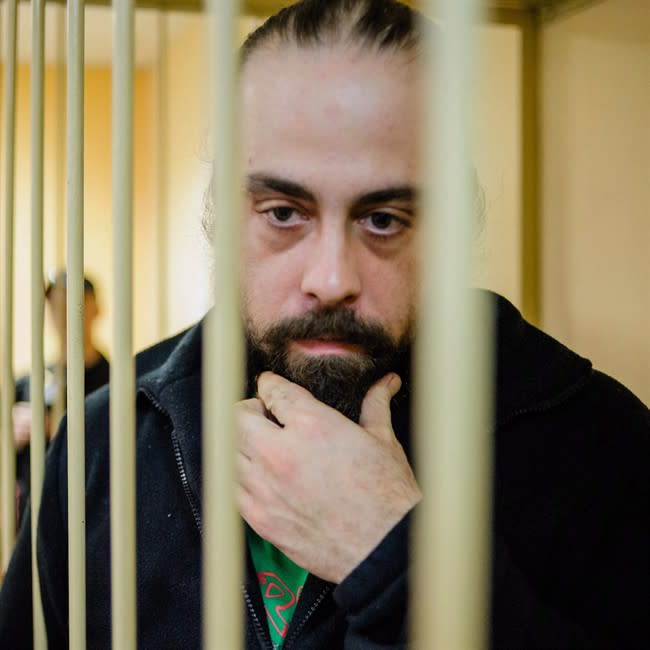2 Canadian Greenpeace activists clear to come home after Russian charges dropped
ST. PETERSBURG, Russia - It was hoped that two Canadian Greenpeace activists would return home by the weekend after Russia dropped charges against them following a protest outside an oil rig in the Arctic.
A Greenpeace spokesman confirmed on Wednesday that Alexandre Paul of Montreal and Paul Ruzycki of Port Colborne, Ont., were among 29 members of the group who had their criminal cases closed under an amnesty that was passed by Russian parliament earlier this month.
"The families are really relieved. This news is the best Christmas present that the families of the activists could receive," Diego Creimer said in a phone interview.
The move has been seen by many as an attempt by the Kremlin to dampen criticism of Russia's human rights record before the Winter Olympics in Sochi in February.
Paul and Ruzycki were held in custody for two months along with their fellow activists before they were released in November pending trial.
They were originally charged with piracy, but that was then downgraded to hooliganism.
Greenpeace says the activists who have had their cases closed have already applied to the Russian authorities for exit visas to leave the country and expect to get them in the next few days.
The two Canadians have all they need to return home, Creimer said.
”Now we’re down to the logstics, basically booking flights,” he said. ”We’re expecting the two Canadian Greenpeace activists to be arriving in Canada by this weekend.”
Greenpeace said one member of the group from Italy failed to get his case closed due to the lack of an interpreter and will have to visit the St.Petersburg branch of Russia's Investigative Committee again on Thursday.
Russia's President Vladimir Putin has questioned the Greenpeace protesters's intentions to protect the Arctic and alleged that they were trying to hurt Russia's economic interests.
He said earlier this month that he did not mind that charges against the Greenpeace team were dropped under the amnesty, but that he hoped that "this will not happen again."
The activists on board the Greenpeace vessel Arctic Sunrise were originally charged with piracy when some of them attempted to scale an offshore drilling platform belonging to the state-owned natural gas giant Gazprom. The charges were later downgraded to hooliganism before the anmesty was approved.
Greenpeace had maintained the charges were absurd.



